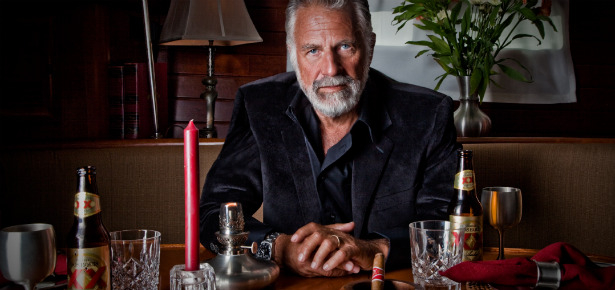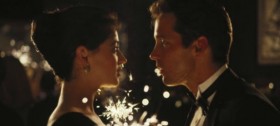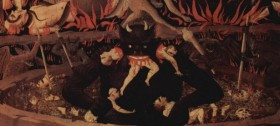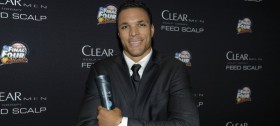A Conversation With the Most Interesting Man in the World

You may not know Jonathan Goldsmith by name, but if you saw him walking down the street, you’d probably recognize his face. Goldsmith has been acting since the ‘70s. He’s been on Dallas, MacGuyver, Magnum P.I., Knight Rider, T.J. Hooker, the A-Team, Dynasty, CHiPs and Charlie’s Angels. You probably know him best as The Most Interesting Man in the World, the ultra-fascinating, smooth-talking spokesman for Dos Equis.
I had the opportunity to speak with Jonathan, and as it turns out, the actor behind The Most Interesting Man in the World is a pretty interesting guy himself. He’s articulate, well-read and he lives on a boat. He’s traveled the world, supported many causes and he’s a damn good story-teller.
CS: Is there a burden for being recognized as the most interesting man in the world?
JG: Is it a burden? No. It’s an absolute joy for me. I’ve had a very good career for over 40 years. And the attention that I’m getting, I absolutely love. It’s wonderful. It’s kind of non-stop and I really appreciate it.
CS: Nice. So do people stop you on the street all the time and say things like, “stay thirsty?”
JG: That’s most frequent thing I get is, “stay thirsty” and a lot of people say, “Please, please just leave this message on my voicemail” or “talk to my fiancé” or whatever, but and it’s nice that people remember more of the lines than I do and some of them are even from the first year. We just entered the fourth year of the campaign so that’s very flattering and I love that, of course. It makes people smile.
CS: I read that the inspiration behind your character came from an old friend, Fernando Llamas, the father of Lorenzo Llamas.
JG: That’s correct.
CS: What is it about your old friend that you channel when you play The Most Interesting Man in the World?
JG: Well, I just he was one the most charming raconteurs that I’ve ever met. A real man’s man. He was an athlete. He was an incredible swordsman and charming. He could tell the dirtiest jokes and it was never vulgar. He was, I guess, the quintessential gentleman, and man’s man and he was just a delight to be around. I live on a sailboat and he was one of my sailing buddies. We had a production company together at one time and when he passed on I scattered his ashes off my boat.
CS: Oh, that’s, that’s a nice way to go out
JG: Well listen, we all have to go Chris, you know?
CS: Yeah, I mean that’s what I did with my grandparents, too. I think it’s a bit more, I don’t know… it’s a bit better than having people come visit a headstone. That kinda thing.
JG: Aw, Jesus, I think so too. I’m on my way tomorrow to Vermont trying to buy a farm up there. My father was a fly fisherman, which is the thing that I most enjoy, and I scattered his ashes on a little stream up there and now I’m going to hopefully purchase a second home not far from that spot. I think that’s a nice thing to remember somebody by. Better than a headstone.
CS: So what’s it like living on a boat?
JG: It’s wonderful. It’s kind of like triage. You only have those things that are very special and poignant to you. Things that are part of, you know, cherished heirlooms perhaps. I actually have my grandmother’s 100 year old silver Tiffany silverware. And I have another aunt who was awarded a woman of the year award by Eleanor Roosevelt. I have a collage of dried flowers that she had and some antique decanters that belonged to an uncle. Things that are a very personal, you can’t have too much.
CS: Right.
JG: I have always had more things than I need. e I have a storage unit with literally thousands of books in it…
CS: Oh, nice.
JG: …and of course you can’t do that on the boat so you just take those things that are really important that don’t clutter up your life space. Every place I look there’s something beautiful and something important to me.
CS: So how often do you go sailing? How often do you take the boat out?
JG: Well, you know because we live aboard there’s a lot of stuff that has to be put away, but at least every other week we get out.
CS: Where do you go when you when you sail?
JG: Well usually it’s just up to Malibu or down the coast towards Long Beach. Then of course we take weekends, and I try to go in the winter when nobody’s there to Catalina.
CS: Nice!
JG: Yeah I like the serenity of it. I’m very big on peace and quiet which is one of the other reasons for Vermont. I’m standing talking to you in Tarzana and I think that this kind of heat and traffic and cacophony will shorten one’s life or at least mine and I want to get out.
CS: Do you travel a lot for the Dos Equis shoots?
JG: Well, not necessarily for the Dos Equis shoots, but for things that are related. I mean I’m not limited to just working with Dos Equis. I can’t do anything else involving liquor or beer, but I do other things. I’m on the speaker circuit and you know I travel some doing that and making appearances and things as myself. I can’t appear as The Most Interesting Man because number one they own it.
CS: Right, right.
JG: That’s understandable…
CS: So what’s the most interesting place that that you’ve traveled to?
JG: Most interesting… I guess it would be in the Caribbean. I had a boat one time that I kept in the Caribbean. I wintered it in Venezuela and then sailed all the way through the Grenadines and through Martinique, Antigua, Guadalupe, and all the little tiny cays in between, and ended up in Turks and Cacos and British Virgin Islands and then back to Miami. That was easily the most interesting trip and I would say that Martinique is especially beautiful.
CS: How long did that a trip like that take?
JG: About two and half months.
CS: Oh, wow that’s nice.
JG: Yea, it was great.
CS: What’s a place that you’ve never been to but have always wanted to visit?
JG: I would say probably the Greek Islands and Turkey in the Mediterranean.
CS: Especially for sailing right?
JG: Oh, yes, yes. Absolutely. There’s something about the tranquility and the freedom that one has on a boat. You know, if you want to move, you just move. Take your home with you. It’s really a lovely experience. And someday I’d like to do that. I’d like to cruise even though we have the place in Vermont that’s, you know, a home base, but certainly in the winter time I would like to take the boat cruise. Now initially, while I’m busy — and I’m very busy right now — I would keep the boat on the West Coast, because I do other things. There is some print work, a lot of interviews, etcetera, as well as auditioning for some things. I’m waiting to hear about a movie right now, so I’d probably want to go down to Costa Rica. Where I’ve been, it’s beautiful. It’s gorgeous. You been there?
CS: No, I have friends who talk about the rain forest experiences there. And it’s not too far…
JG: Well, their literacy rate is the highest in the world.
CS: Oh, wow.
JG: They’ve never had an army – well, I don’t know if they’ve ever had an army – but they don’t have one and haven’t for years. Never had a war. They have a higher infant mortality or lack of infant mortality rate than we do I believe. They have a better school system, their medical care is superb and their life expectancy is considerably more than ours. It’s just a very happy, happy place very hospitable people. That would be one cruise that I’d like to take. Take the boat through the canal and into the Caribbean, keep the farm and be able to grow my vegetables and flowers in the spring. So that’s my long range plan.
CS: So you’ve been acting since the seventies, and I know that you’ve done a lot of television work. What is the most interesting shoot or character that you’ve played or television experience that you really remember.
JG: Well, geez there were so many. I guess I would associate that question or my answer with the people that I worked with. I had the pleasure of working with Henry Fonda. He played a police inspector – it was not a big show or anything – but that was joyous. He was really just a gentleman, a delightful man and very, very gracious as an actor. But I would definitely say that the best experience I ever had as an actor was starring opposite Burt Lancaster.
CS: Oh, wow.
JG: Yeah, wow is right. It was a quite an experience. A Vietnam piece, uh 1977, and it’s kind of a cult picture. It’s called Go Tell the Spartans, and it’s about the corruption, the South Vietnamese, Vietnam and our involvement with them. And that was that was spectacular. I had one the central roles, a very challenging one and got wonderful reviews. The whole experience was terrific. You can still get that at Blockbuster.
CS: That’s definitely something I’ll check out.
JG: Yeah, Go Tell the Spartans. It’s terrific little picture, and it was made for less money than a television show.
CS: Wow.
JG: Less than a million bucks, yup. And all of it was dubbed. We shot it right out by Magic Mountain, so in some of the highly dramatic scenes you can hear the other people yelling on the roller coasters.
CS: That’s funny.
JG: Yeah, but then we all went individually into an empty soundstage. And I had an extremely dramatic scene where I kill myself and I had to do it all by myself on a soundstage.
CS: (Laughs)
JG: It had its challenges…
CS: How do you how do you manufacture that kind of emotion with no one to bounce things off of?
JG: Well, that’s what comes with the territory. Good actors are able to call upon those scenes inside of themselves — things that have existed, their dark side, or their demons, their joyous sides. That’s just what actors, good actors do – call upon life’s experience.
CS: Now, I also read that you have you have a pretty strong background in improvising and you work with kids and in prisons teaching improvisation techniques.
JG: Yea, one of the things that I’ve done since I’ve been 18, really and that’s quite a long time, is work with abused and handicapped kids. About 30 years ago, I started with an organization that I’m still very involved with called Free Arts for Abused Children. What we do is we bring in arts programs to kids who are either incarcerated or under lock and key protection, sometimes from their own parents, and we provide a non-threatening environment for them to express themselves through acting, or painting, dance, improvisation certainly, and then their therapists sometimes will get good insight that they say can save years of conventional therapy and certainly accelerate the process.
I’m also involved with an organization called Stella Link Productions. They were doing a picture on the child pornography sex trafficking in Cambodia and Thailand. And something I’m very involved with is one more charity called the S.A.B.R.E. Foundation. We’re trying to do what we can to call attention to one of the most endangered species, the Siberian tiger.
CS: Just a couple more Dos Equis related questions.
JG: Sure, yeah.
CS: It seems like it would be a lot of fun making these commercial spots. Is that the case?
JG: Yes, yes it is. It is a lot of fun, but is also an exorbitant, enormous amount of work. We go over it so many different times and when you shoot a commercial, there are not only the ad agency people there, but there’s also the sponsor. So we’re working with a whole committee of people that see things not always the same, so it’s, you know, it had to be done over and over and over this angle, that angle, this directions, etcetera, etcetera. It’s hard work. And also these are very rigorous, physical things. I’m not 25 years old.
CS: (Laughter)
JG: Don’t laugh. Don’t chuckle so loud.
CS: No, no, no. I’m just thinking back to the commercials like I you know like you’re hanging from rocks and, you know, like wading through water this kind of stuff.
JG: Yeah, yeah well. I go to the gym every day. Every day but one. Every single day. And in all truth, you know that they use a stunt double for some of the stuff as well, of course.
CS: (Laughter) Yea, of course. Do you get to improvise at all when you are on the set or is it all pretty rigid?
JG: Well, they usually have it pretty rigid, but in the very beginning I improvised a great deal, and I think it had a lot to do with the creation of the eventual character that came out. I knew that before I got the role, that one would have to be good at improvisation. There were three different times I got called back, each time it was improvisational and they searched all over the country. So about three months was involved. I would like to think that I made some contributions to their terrific ideas.
CS: Right. So what do you enjoy most about playing the character? ‘Cause it’s gotta be fun playing being the alpha male masculine guy, you know, all that stuff.
JG: I’ll tell you, what I enjoy the most is that it brings a chuckle to people’s face. It also has a little bit of a message, so I guess one might say it has something to do with leaving a legacy.
CS: That’s a good point. Everyone wants to feel like they’ve left some sort of mark on the world. Yeah.
JG: Yeah. Why not? Like to feel that you’ve maybe made an impression with people, maybe, you know, show a guy how to alpha it up a just little bit, how to feel more comfortable, cooler.
CS: So, what would you say to a person who wants to live a more interesting life?
JG: Become an interested person.
CS: There you go. That’s a good idea.
JG: Or if not, the people that are not interested become uninteresting. I firmly believe that. Particularly people that don’t read. If you don’t read you have no desire to learn and you’re a bore.
CS: So you need that curiosity to generate curiosity about yourself. Yeah, that makes sense.
JG: Well, I think so. If you don’t have curiosity, your friends probably won’t either. Do you want to be like that or be challenged? Provocative people challenge you to grow. Who do you want to be like? You know, do you want to be like the guy that’s not accomplished anything? Do you sit back in the parade of life and watch as it goes by like a spectator who lives vicariously? Or do you want to actually be a participant in the parade of life. My motto is to celebrate the possibilities. Most people just take up space, accomplish little and leave nothing behind. I don’t want to be like that.
CS: Yeah, man. This is this is inspirational stuff, I gotta say Jonathan.
JG: Oh it’s true. I firmly believe it. I believe it with all my heart and soul. And it’s got nothing to do with money. Some the coolest, hippest, most marvelous people that I’ve ever read about or have known have little in the way of material things. It has little to do with money. It has to do with attitude. Don’t be don’t be a bore. Be interested, and you’ll be interesting.
CS: I like it. So you mentioned how you’re an avid reader. Who are some of your favorite authors or what are some of your favorite books?
JG: Well, I’ll just name a few that I just finished reading. One was The Darkside, about the Rendition program. The other one was The Family, about these phony C Street bastards. Uh, forgive me. I, I tend to be rather passionate about politics.
CS: That’s okay.
JG: Game Change about the presidential election, as seen through the various separatists camps. And, let me see, I just finished one the other night. Oh one about Jerry Weintraub, the marvelous impresario, it’s called When I Stop Talking, You’ll Know I’m Dead. It was a charming book. I read a lot of political stuff. James Michener is an author that I love. I actually did one of his stories I went to the moon in Space years ago. Edgar Allen Poe is certainly one of my favorites. Nathaniel Hawthorne, I like the classics. And I love some of the ancients, you know, the Greeks, Plato, Aristotle. Old and new, and mostly anything by Christopher Hitchens.
CS: Nice mix.
JG: Anything that’s provocative, that makes you think.
CS: So what are you political leanings?
JG: I’m… well, this is where I can get into trouble.
CS: Uh-oh! I don’t want to get you into trouble Jonathan.
JG: No, let’s just say I believe in civility, responsibility, caring, and a government of the people, by the people, for the people.
CS: I don’t think we’re going to piss off anybody with that. But I like it. It’s a measured, honest and straight-forward response too.
JG: Okay my friend, well, that’s how I feel.
CS: One last question. What was it like doing a show on the “A-Team”?
JG: Uh, I didn’t enjoy it.
CS: Really?
JG: No, not much. There were a lot of very egotistical… there were a few egotistical and boring people on the show. There were also some very charming people, but the egotists made it not the most pleasant experience.
CS: I gotcha. Well, I think I’ve probably taken enough of your time and I just want to say thanks.
JG: My pleasure, Chris.
Related Posts
| Print article | This entry was posted by Chris Stout on July 15, 2010 at 7:45 am, and is filed under Entertainment. Follow any responses to this post through RSS 2.0. Both comments and pings are currently closed. |
Comments are closed.



















